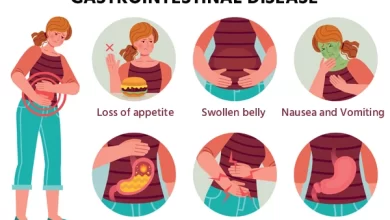Advancements in Respiratory Medicine: Improving Lung Health

Advancements in respiratory medicine have revolutionized the diagnosis, treatment, and management of lung disorders, offering new hope and improved outcomes for patients worldwide. From innovative diagnostic techniques to cutting-edge therapeutic interventions, these advancements have significantly contributed to enhancing lung health and reducing the burden of respiratory diseases. In this article, we explore the latest advancements in respiratory medicine and their impact on improving lung health.
Advanced Diagnostic Technologies:
One of the most significant advancements in respiratory medicine is the development of advanced diagnostic technologies that enable more accurate and timely diagnosis of lung disorders. High-resolution imaging modalities, such as computed tomography (CT) scans and magnetic resonance imaging (MRI), provide detailed visualization of lung structures and help identify abnormalities, such as tumors, nodules, and pulmonary fibrosis, with greater precision. Furthermore, molecular diagnostic techniques, including genetic testing and biomarker analysis, allow for personalized treatment approaches tailored to each patient’s unique genetic profile and disease characteristics.
Precision Medicine Approaches:
The emergence of precision medicine approaches has revolutionized the management of respiratory diseases by targeting specific molecular pathways and genetic mutations underlying lung disorders. Personalized treatment strategies, such as targeted therapies and immunotherapies, have shown promising results in the treatment of lung cancer, asthma, and pulmonary hypertension, improving treatment outcomes and minimizing adverse effects. Additionally, advancements in pharmacogenomics have enabled healthcare providers to predict individual responses to medications and optimize treatment regimens based on genetic factors, enhancing therapeutic efficacy and safety.
Minimally Invasive Interventions:
Minimally invasive interventions have transformed the field of respiratory medicine by offering less invasive alternatives to traditional surgical procedures for the diagnosis and treatment of lung disorders. Bronchoscopic techniques, such as endobronchial ultrasound (EBUS) and electromagnetic navigation bronchoscopy (ENB), allow for precise sampling of lung lesions and mediastinal lymph nodes, facilitating early diagnosis and staging of lung cancer. Furthermore, minimally invasive procedures, such as bronchial thermoplasty for severe asthma and bronchoscopic lung volume reduction for COPD, offer effective therapeutic options with reduced morbidity and faster recovery times compared to conventional surgical approaches.
Innovations in Inhalation Therapy:
Inhalation therapy remains a cornerstone of respiratory management, and recent innovations in inhaler technology have led to the development of more efficient and patient-friendly devices for delivering respiratory medications. Dry powder inhalers (DPIs), soft mist inhalers (SMIs), and smart inhalers equipped with sensors and digital connectivity features enable precise drug delivery, improved medication adherence, and real-time monitoring of treatment outcomes. Additionally, advances in drug formulations, such as biologic therapies and gene therapies delivered via inhalation, hold promise for targeted treatment of severe respiratory conditions, such as cystic fibrosis and idiopathic pulmonary fibrosis.
Telemedicine and Remote Monitoring:
The integration of telemedicine and remote monitoring technologies has revolutionized the delivery of respiratory care, especially in remote or underserved areas where access to specialized healthcare services may be limited. Teleconsultations, virtual pulmonary rehabilitation programs, and remote monitoring devices, such as wearable sensors and home spirometers, enable healthcare providers to remotely assess lung function, monitor disease progression, and provide timely interventions to patients with chronic respiratory conditions, improving access to care and enhancing patient outcomes.
Advancements in respiratory medicine continue to drive progress in the prevention, diagnosis and treatment of lung disorders, offering new opportunities to improve lung health and quality of life for patients worldwide. By embracing cutting-edge diagnostic technologies, precision medicine approaches, minimally invasive interventions, innovations in inhalation therapy, and telemedicine solutions, healthcare providers can optimize patient care, reduce disease burden, and advance the field of respiratory medicine towards a future where respiratory diseases are effectively managed and lung health is prioritized.
Thanks for visiting https://fibastech.com





